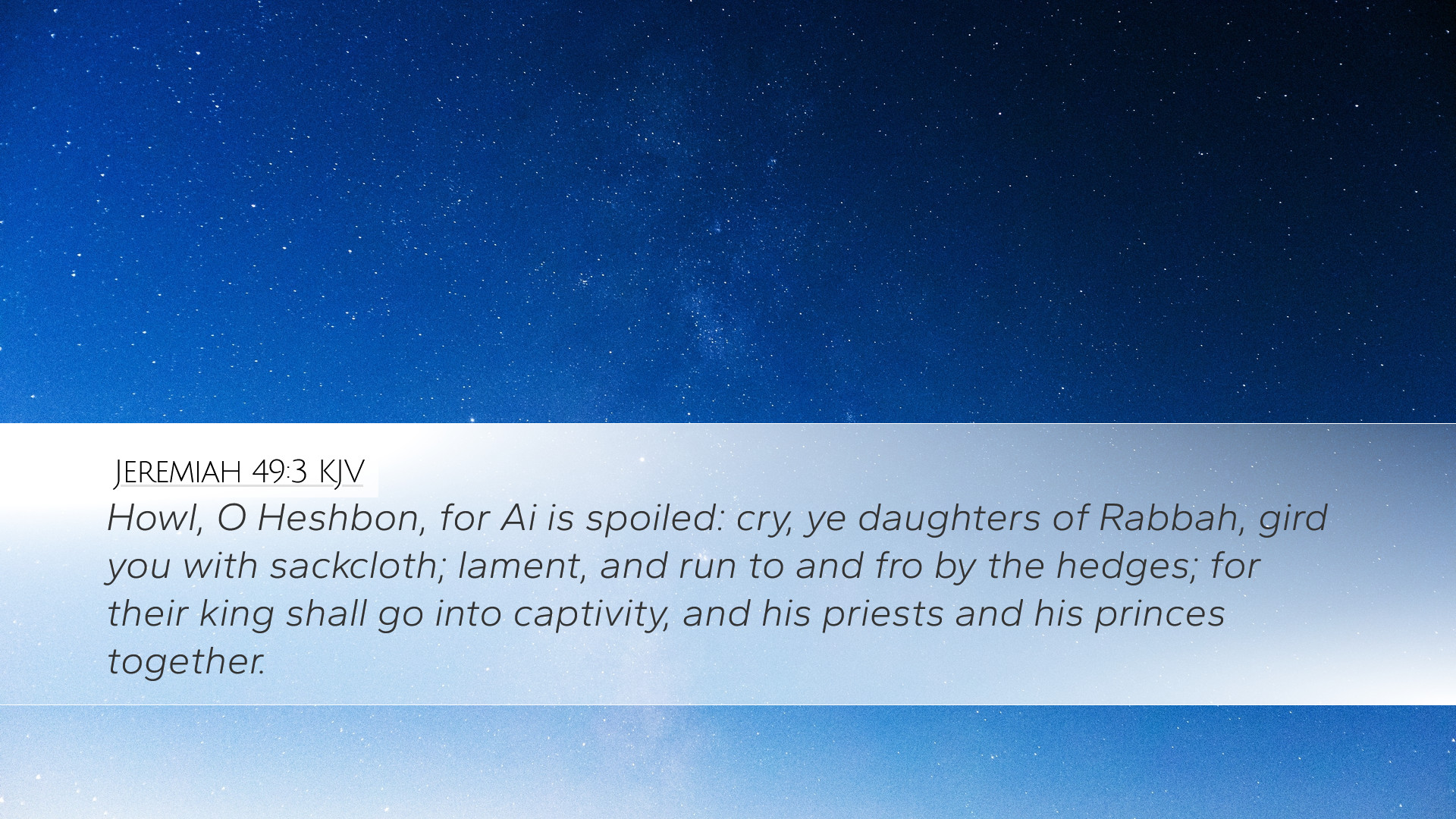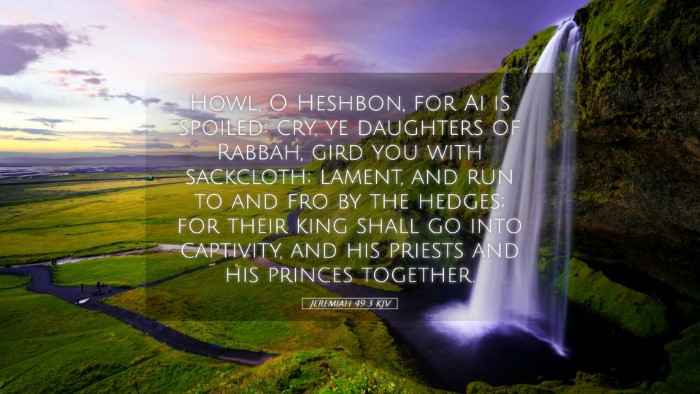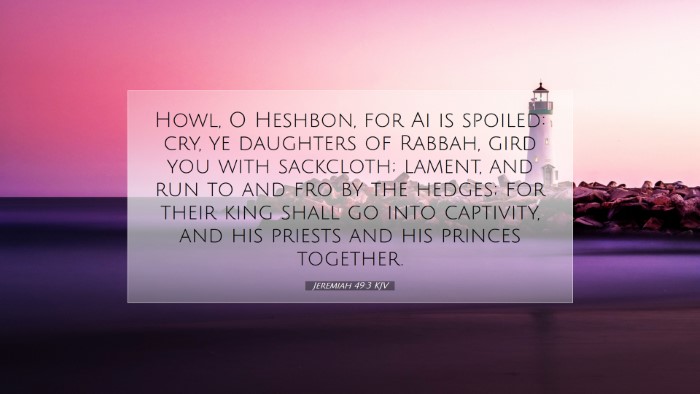Commentary on Jeremiah 49:3
Scripture Reference: Jeremiah 49:3 - "Wail, O Heshbon, for Ai is laid waste; cry, ye daughters of Rabbah, gird you with sackcloth; lament, and run to and fro by the hedges; for their king shall go into captivity, and his priests and his princes together."
Introduction
The book of Jeremiah presents a vivid portrayal of God's judgment upon nations, and in this passage, the focus shifts to the impending doom of Ammon. Jeremiah 49:3 serves as an urgent call to mourning for the destruction that is to come. This commentary synthesizes insights from classical theologians to explore the implications and deeper meanings of this verse.
Historical Context
The reference to Heshbon and Rabbah provides insight into the geography and politics of the ancient Near East. Heshbon was an ancient city associated with the Amorites, while Rabbah was the capital of the Ammonites. Understanding the historical backdrop is essential for grasping the severity of the prophet's words.
Matthew Henry's Perspective
According to Matthew Henry, this passage reflects a period of judgment that was imminent upon Ammon due to their idolatry and enmity towards Israel. Henry emphasizes the call to wailing and lamentation as a sign of national mourning. The mention of "sackcloth" denotes a deep penitence and recognition of impending judgment. The command to "run to and fro by the hedges" suggests a frantic effort to awaken a sense of urgency in the hearts of the people.
Albert Barnes' Insights
Albert Barnes highlights the symbolic nature of the call to cry out, indicating that it's not merely an announcement of doom but also a summons for repentance. He notes the juxtaposition of royalty and priesthood being taken into captivity, which signifies a complete social and spiritual upheaval within Ammon. Barnes interprets "cry, ye daughters of Rabbah" as a challenge to the women, who had traditionally been seen as the ones who bore the brunt of societal collapse, thus illustrating the totality of this impending disaster.
Adam Clarke's Analysis
Adam Clarke delves deeper into the imagery presented in the verse. He argues that the heart of the message is not simply about the fall of Ai but about the comprehensive grief that should envelop the people of Rabbah. He draws attention to the necessity of lamentation as a reflection of true sorrow for sin and the reality of judgment. Clarke emphasizes that the kingdom's leadership—its king, priests, and princes—will face the consequences of their rebellion against God.
Theological Implications
This verse raises significant theological implications regarding judgment and mercy. It serves as a poignant reminder of God's justice in the face of idolatry and sinfulness, reflecting a theme pervasive throughout Scripture.
- Judgment Due to Idolatry: The impending judgment signifies God's displeasure towards nations that turn their back on Him. It serves as a warning to contemporary readers regarding the dangers of spiritual complacency.
- The Role of Leadership: The captivity of the king and the spiritual leaders emphasizes that those in authority bear a greater responsibility for the moral and spiritual health of their community. This serves as a cautionary note for modern leaders within the church.
- Call to Mourning and Repentance: The cry for lamentation points to the need for an earnest response toward sin—not merely as an outward performance, but as a deep, heartfelt response to one's spiritual condition.
Application for Today's Leaders and Believers
This passage is particularly relevant for pastors, theologians, and everyday believers. It serves as a call to examine one's own spiritual state and the impact of sin in both personal and communal settings.
Call for Repentance
Church leaders are encouraged to call their congregations to repentance, not merely in the context of national or political issues but in the personal and relational spheres that affect the body of Christ.
Awareness of Consequences
The verse serves as a reminder that national and spiritual leaders hold great significance and bear a weighty responsibility. Leaders must remain vigilant against the forces of idolatry and be willing to stand firm in faith against societal pressures.
Urgency of Spiritual Warfare
Like the call to "run to and fro," believers are urged to be proactive in prayer, intercession, and the proclamation of God's righteousness in a world that is increasingly hostile to His values.
Conclusion
Jeremiah 49:3 encapsulates an urgent and poignant reminder of impending judgment, the response of mourning, and the call for repentance. Insights from public domain commentaries reveal the depth and multifaceted implications of the text, encouraging readers to reflect on their lives in relation to God’s holiness and the broader spiritual landscape of their communities.


